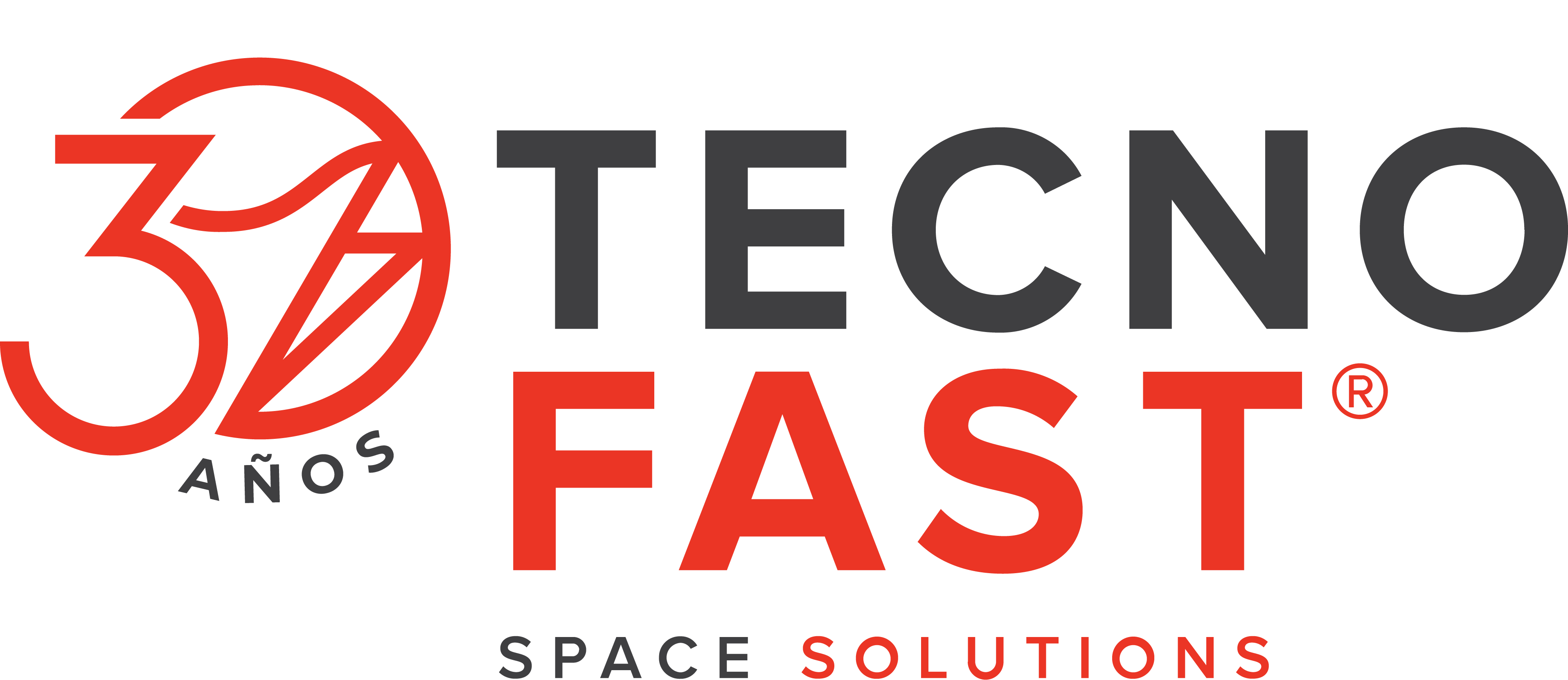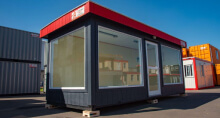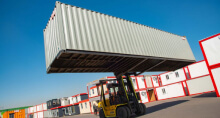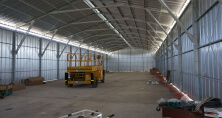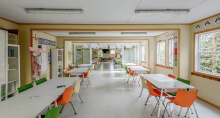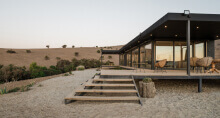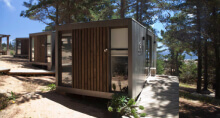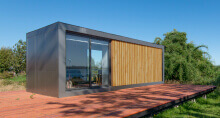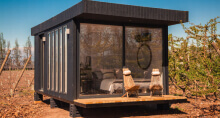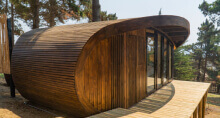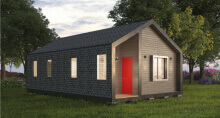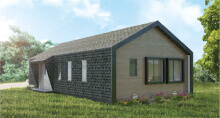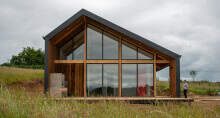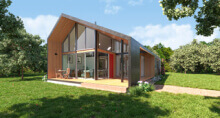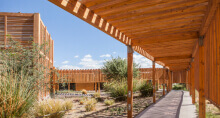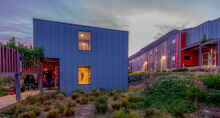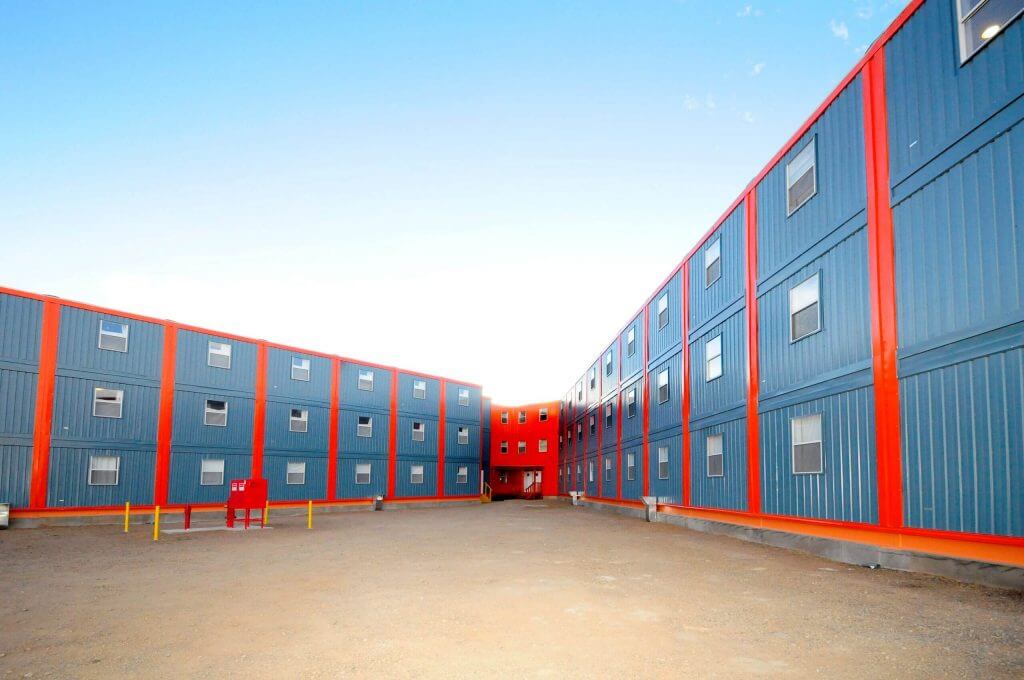When we think about the future, it can be difficult to imagine how everything will transform, but at Tecno Fast, we are very clear that when it comes to construction and architecture, we immediately think of sustainability and efficiency. And so, modular manufacturing and the use of wood will become more and more common.
We invite you to review the following note and learn more about the future of construction, how it should evolve and transform in the coming years. Because with Tecno Fast, the future is modular.
How will be the construction of buildings in 2030?
- Two aspects will define the development of the industry in the next decade:the sustainability and efficiency. Along these lines, modular manufacturing and of wood will be more and more common.
The industry of Construction is one of the main responsible for greenhouse gases. greenhouse effect, representing 40% of global emissions world, which has led various actors to rethink the how the buildings are erected.
The experts agree that two factors will determine whether the industry will be able in the next decade to leave behind its record as polluting industry: sustainability and efficiency.
sustainability
To be more sustainable, companies in this area have to change the how they extract and use raw materials in order to reduce waste to the maximum.
Some countries Europeans are already replacing traditional materials such as steel and concrete with other elements that are more friendly to the environment, such as recycled plastic and wood.
“Timber has a number of advantages over other components: it is more solid, more durable, faster and easier to use in the construction, requires fewer trucks to be transported and, perhaps most importantly, it is able to reduce its impact by absorbing carbon dioxide”, explained Cristián Goldberg, manager of Rental & Home by Tecno Fast.
there are two countries who are leading the wood revolution: On the one hand, Finland aims to double the use of this material in construction and, on the other, France established that, as of 2022, all new public buildings have to be built with at least 50% wood or other sustainable material.
to the use of environmentally friendly elements are added to the efforts to recycle these components. Once again, Europe is at the vanguard in this matter, since Germany recycles 68 million tons per year and the Netherlands reuses 90% of its waste on new projects.
Efficiency
one time built, the buildings will have greater demands to be efficient in energy terms, since they currently represent a third of global electricity consumption.
The World Green Building Council, a global organization that brings together companies from the construction sector and which advocates the development of buildings green, seeks that all new works are carbon neutral from 2030. To achieve this, the institution is urging its associates to that any energy use be offset with energy renewable energy generated in the same place.
The automation is also an aspect that is allowing industry processes more efficient. In the next decade, robotics and artificial intelligence will be universal and machines will work together with humans.
These advances have given a new impetus to prefabrication, a concept that makes reference to the elaboration of certain elements of a building in a factory, which are later transported to the site of construction to be assembled.
“This format It has several advantages over building in the same place: improves safety, lowers costs, reduces lead times construction and raises the quality of the product”, Goldberg specified.
Depending on the site specialized B1M, it is estimated that modular construction will have a appreciation of US$ 130 billion in the United States alone and Europe in 2030 and will allow construction times to be cut by up to 50% and costs up to 20%.
“No doubt that the construction sector has everything in its favor to be an active and transformative agent in the fight against change climate. Along these same lines, we are convinced that the future it is modular”, concluded the manager of Tecno Fast.
